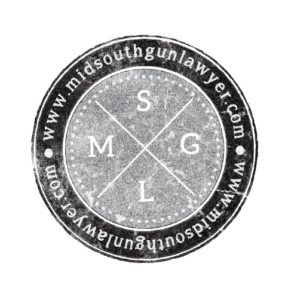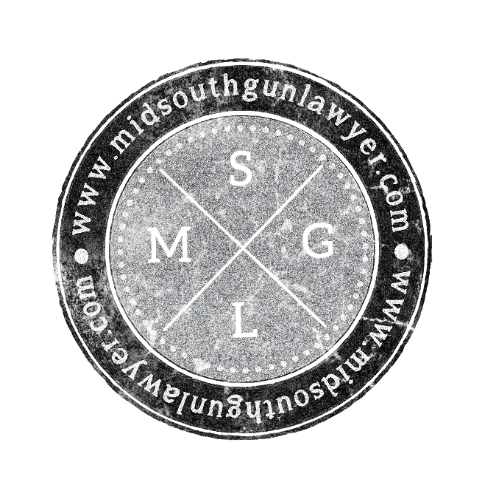Tennessee is a “shall issue” state, meaning that an applicant who meets all statutory criteria must be issued a license to carry a concealed pistol, revolver, or stun gun. The basic criteria for issuance of either Tennessee handgun licenses are: being a Tennessee resident and either a U.S. citizen or lawful permanent resident; at least twenty-one years of age; no felony convictions or indictments; not subject to any order of protection; not an unlawful user of alcohol or controlled substances; having been neither a voluntary nor involuntary patient in a rehabilitation program; not having a mental defect; not having been dishonorably discharged from the armed forces; no domestic violence convictions; no stalking convictions; and not receiving social security benefits by reason of alcohol dependence, drug dependence, or disability. Additionally, an applicant must not have been convicted of DUI in Tennessee or any other state more than two times within ten years of the application date, and must have no convictions within five years of renewal application.
It is important to note the newly formed distinction between a “concealed handgun carry permit” and an “enhanced handgun carry permit.” Tennessee’s most recent licensing reform takes effect on January 1, 2020, officially designating the old permit process as an “enhanced carry permit” while creating new guidelines for the “concealed handgun carry permit.” Both permit holders must carry the permit on their person at all times, and display the permit to a law enforcement officer on demand. Concealed (basic) carry applicants must apply in person while enhanced applicants may apply online. Enhanced carry applicants must provide photo ID while basic applicants may be able to use other forms of identification. Enhanced carry permits must be issued to qualified applicants within ninety days of the date the department receives the application.
Basic permit requirements for demonstrating proficiency with a handgun are much more lenient than those for an enhanced permit. While enhanced carry permits require eight hours of training, including both classroom and range firing hours, concealed (basic) permits only require ninety minutes of training, and allow for such to be completed through an online course. Thus, it is possible to obtain a basic permit without having ever operated the weapon. Concealed (basic) permits may be issued as a letter to the applicant without the applicant’s photograph; while enhanced permits must be issued on a wallet-sized laminated card complete with the permit holder’s name, address, physical description, and a color photograph of the permit holder. Most notably, only enhanced permit holders may carry on “school property.” Refer to the table below for a quick guide of what locations carrying is prohibited in with each license.
Enhanced carry applicants must submit fingerprints with their application, and pay a $115 application fee; with an exception for military members who pay only background check fees. Enhanced applications require proof of the successful completion of a department approved handgun safety course. Enhanced carry applicants must take a course with a portion discussing alcohol and drugs and liability when handling a weapon intoxicated. Those seeking a military exception to the training portion must have four hours of handgun training in the service. Enhanced applicants have their fingerprints sent to the FBI and checked by the federal background check as well.
Concealed carry (basic permit) applicants must apply in person, but do not need to submit fingerprints. Basic permits are free. Concealed applications have a less strict safety course requirement, allowing proof of: completion of hunters’ safety course; completion of any NRA safety or training course; completion of any firearms safety course by local college or law enforcement agency; equivalent experience with firearms through organized shooting; previously having a license in this state; completion of any, including online, firearms course by a state-certified or NRA-certified instructor; governmental or law enforcement training; or any other training the department deems adequate.
| Prohibited Locations Based on License | ||
| Location | Carrying Allowed with Enhanced Carry Permit | Carrying Allowed with Concealed Carry Permit |
| School Property | No, but with qualifications. Tenn. Code Ann. 39-17-1309(e)(8): if the person possessing the handgun is within a public park, natural area, historic park, nature trail, campground, forest, greenway, waterway or other similar public place while not in the vicinity of a school event it may be carried. | No. |
| Properties with Posted No Guns Signs (includes property of any individual, corporation, business entity, or local, state, or federal government entity or agent thereof) | Only if meeting place provides metal detectors, and a trained guard/officer for searching each individual and bag. Tenn. Code Ann. § 39-17-1359(g)(1). | No. |
| Any establishment open to the public where liquor, wine or other alcoholic beverages, or beer are served for consumption on the premises while consuming alcohol | No. Tenn. Code Ann. 39-17-1321(b). | No. Tenn. Code Ann. 39-17-1321(b). |
| Anywhere under the influence of alcohol or controlled substance | No. Tenn. Code Ann. 39-17-1321(a). | No. Tenn. Code Ann. 39-17-1321(a). |
| Personal vehicle | Yes. Tenn. Code Ann. 39-17-1313. | Yes. Tenn. Code Ann. 39-17-1366(h). |
| During Judicial Proceedings | No, unless a judge. Tenn. Code Ann. 39-17-1306(c)(3). | No. |
| Public parks, playgrounds, civic centers, and other public recreational buildings and grounds. | Yes. Tenn. Code Ann. 39-17-1311(b)(1). | Yes. Tenn. Code Ann. 39-17-1311(b)(1). |

